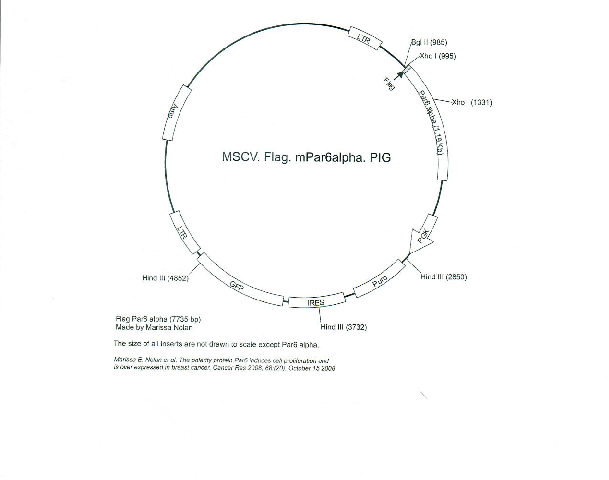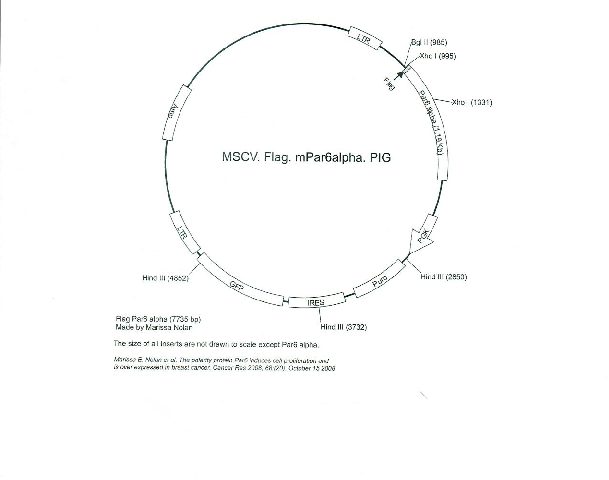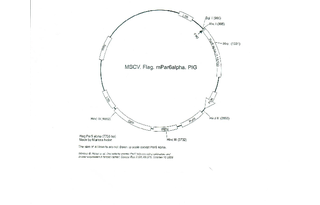FLAG-mPar6a WT
(Plasmid
#86148)
-
PurposeFLAG tagged mouse Par6 wild type - Binds to aPKC, Par3, Lgl, Cdc42
-
Depositing Lab
-
Publication
-
Sequence Information
Full plasmid sequence is not available for this item.
Ordering
| Item | Catalog # | Description | Quantity | Price (USD) | |
|---|---|---|---|---|---|
| Plasmid | 86148 | Standard format: Plasmid sent in bacteria as agar stab | 1 | $85 | |
Backbone
-
Vector backboneMSCV -PGK-Puro-IRES-GFP
-
Vector typeMammalian Expression, Retroviral
-
Selectable markersPuromycin
Growth in Bacteria
-
Bacterial Resistance(s)Ampicillin, 100 μg/mL
-
Growth Temperature37°C
-
Growth Strain(s)NEB Stable
-
Copy numberHigh Copy
Gene/Insert
-
Gene/Insert namePar6
-
Alt namePar6 alpha
-
Alt namePar6c
-
SpeciesM. musculus (mouse)
-
Entrez GenePard6a (a.k.a. 0710008C04Rik, 2610010A15Rik, PAR-6A, PAR6alpha, Par-6, Par6, Par6c, TAX40, Tip-40)
- Promoter LTR
-
Tag
/ Fusion Protein
- FLAG (N terminal on backbone)
Cloning Information
- Cloning method Restriction Enzyme
- 5′ cloning site Hpa1 site (unknown if destroyed)
- 3′ cloning site Hpa1 site (unknown if destroyed)
- 5′ sequencing primer MSCV F
- 3′ sequencing primer MSCV R (Common Sequencing Primers)
Terms and Licenses
-
Academic/Nonprofit Terms
-
Industry Terms
- Not Available to Industry
Trademarks:
- Zeocin® is an InvivoGen trademark.
These plasmids were created by your colleagues. Please acknowledge the Principal Investigator, cite the article in which the plasmids were described, and include Addgene in the Materials and Methods of your future publications.
-
For your Materials & Methods section:
FLAG-mPar6a WT was a gift from Senthil Muthuswamy (Addgene plasmid # 86148 ; http://n2t.net/addgene:86148 ; RRID:Addgene_86148) -
For your References section:
The polarity protein Par6 induces cell proliferation and is overexpressed in breast cancer. Nolan ME, Aranda V, Lee S, Lakshmi B, Basu S, Allred DC, Muthuswamy SK.. Cancer Res. 2008 Oct 15;68(20):8201-9. 10.1158/0008-5472.CAN-07-6567 PubMed 18922891
Map uploaded by the depositor.




